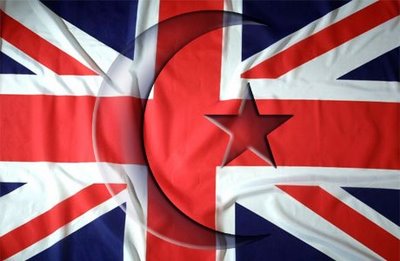

A leading British barrister at Harvard Law School wants Britain to become more Shari`ah-literate, saying that Islamic teachings are compatible with human rights legislations that can serve the whole community.
“It’s very important that they be acknowledged and allowed to exist,” Sadakat Kadri, a barrister and contemporary of Barack Obama at Harvard Law School, told The Guardian on Monday, January 16.
“So long as they’re voluntary, which is crucial, it’s in everyone’s interests these things be transparent and publicly accessible.
“If you don’t have open tribunals, they’re going to happen anyway, but behind closed doors,” he added. Kadri confirmed that the 1400-year-old Islamic law is compatible with the human rights legislations.
The Harvard professor said that “Shari`ah courts”, such as the Muslim arbitration tribunal, could serve “the community as a whole.”
This aim could be reached by putting Shari`ah laws on a transparent, public footing to be more widely accessible to those who want to use or know about these laws, he said.
Making his point clear, Kadri sets out the history of Shari`ah in a new book, Heaven and Earth, to be published next week.
The book describes the slow development of Shari`ah law, which is derived directly from the Qur’an and Prophet Muhammad (peace and blessing be upon him)’s Sunnah, in the centuries after the Prophet’s death.
“I’m not a theologian,” said Kadri.
“But this is my interpretation of Islamic history. There’s a mistaken belief that Islamic law is a vast unchanging body of rules – 1,400 years of Muslim history shows that little could be further from the truth.
“It’s really important that the Muslim community engage with its actual history, as well as idealized traditions. If that’s to take root, critical engagement with the past among young Muslims will be crucially important.”
In Islam, Shari`ah governs all issues in Muslims’ lives from daily prayers to fasting and from, marriage and inheritance to financial disputes.
The Islamic rulings, however, do not apply on non-Muslims, even if in a dispute with non-Muslims.
Misconceptions
The leading British barrister said that misconceptions about Islam and Muslims following the 7/7 attacks helped spread rumors about a claimed violent nature of Shari`ah.
“After 7/7 people were saying the Shari`ah is all about violence, it’s all about chopping people’s hands off, it’s all about stoning adulterers to death. Others said it’s nothing to do with that, Islam is a religion of peace,” Kadri said.
“Clearly both of those things were true at a certain level, but very early on I just realized no one had a clue what Shari`ah said about this or that.”
Britain is home to a sizable Muslim minority of nearly 2 million who have taken full brunt of anti-terror laws since the 7/7 attacks.
They have repeatedly complained of maltreatment by police for no apparent reason other than being Muslim.
Kadri’s call was earlier echoed by Rowan Williams, archbishop of Canterbury, in 2008 when he suggested that Shari`ah law should be more widely adopted.
Under the Arbitration Act 1996, the rulings of religious bodies, including the Muslim arbitration tribunal, already have legal force in disputes involving matters such as inheritance and divorce.
Barrister Kadri said that many of the punishments associated in people’s minds with Shari`ah law have only been applied very recently.
“I try to show how it’s only really in the last 40 years, since Colonel Gaddafi in Libya, but more especially since the Iranian revolution in 1979 that the idea of enforcing Islamic rules through national laws has come to the fore,” he said.
“Before 1973, it was only Saudi Arabia which actually did that.”



